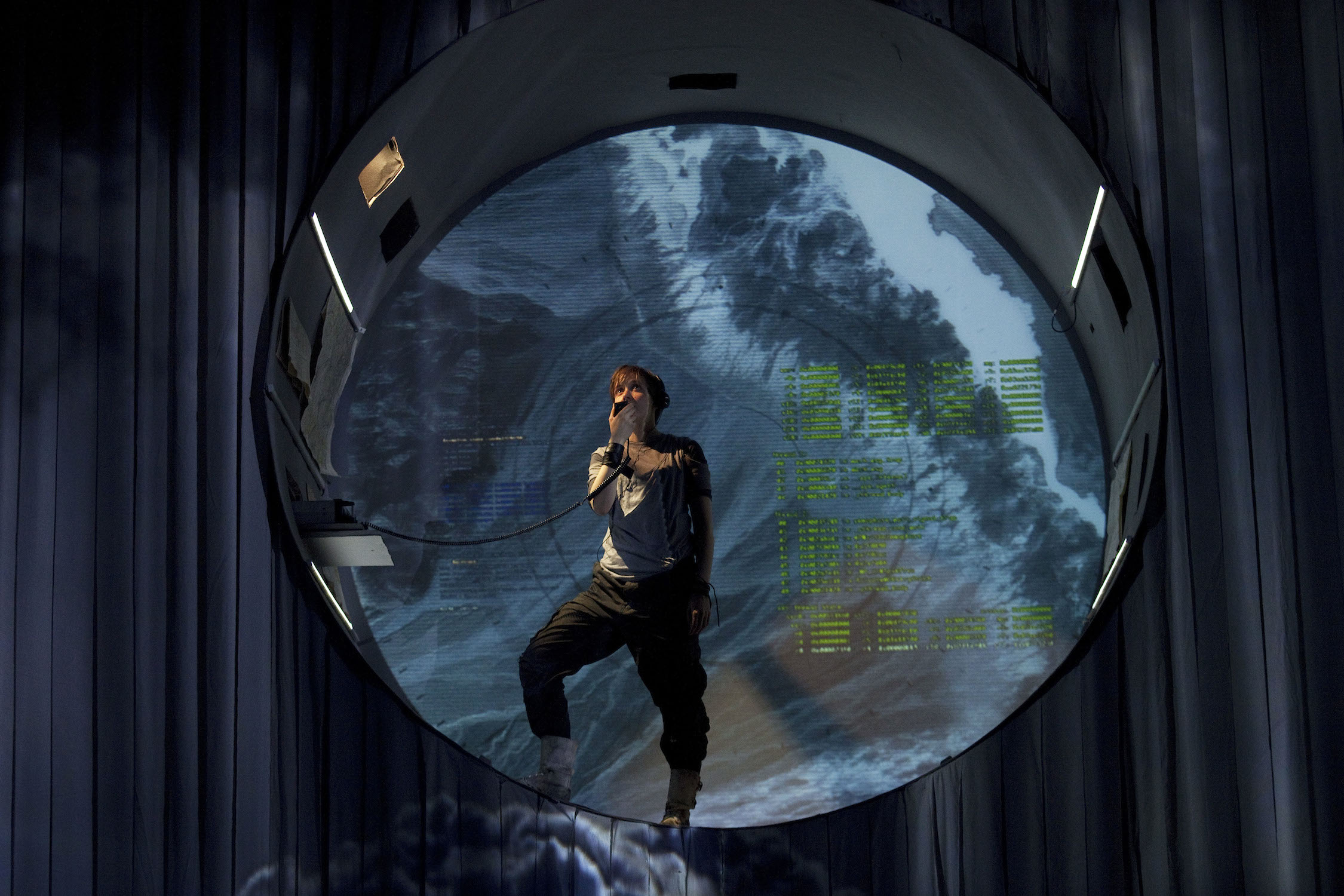
Platform Theatre, London
By Jonny Venvell
Hanging centre-upstage is a shallow tube, a cutaway of a futuristic weather station, emitting light like an eclipsed planet, as four giant blue faces appear projected onto the backdrop.
It is the year 2316, the faces tell us, in the cold sci-fi syntax of the future. Humanity, ravaged by worldwide famine and floods, hangs on the brink of extinction. Aphra, the last surviving human, is holed up in a weather station awaiting what is expected to be a terminal deluge. Her fate can only be altered by the intervention of a small collection of multicultural women living in the present day, who receive visions of the future from our blue-faced spectral Beings.
This is hardly an exposition which many seasoned opera-goers would recognise. But then, theatre producer Melanie Wilson’s Opera for the Unknown Woman flies wilfully in the face of traditional operatic tropes. In place of arias and recitatives, her eco-feminist sci-fi drama progresses variously through scenes of discussion between the multicultural female chorus, projected advice from the Beings, and intermittent reminders of Aphra’s increasingly perilous predicament.
Gone is the pit orchestra. Instead, Wilson constructs her soundscape around her own electronic sound design and the voices of the chorus, who sing together, sometimes accompanied by on-stage cello and percussion, or alone, in solo numbers appropriate to the cultural background each represents. It was in these solo features that the singers truly shone, particular highlights being a genuinely affecting Bulgarian folksong from Eugenia Georgieva and a virtuosic Middle Eastern lament from Yael Claire Shahmoon.
The chorus numbers however, though sometimes effective, as in the polyphonic outcry against female oppression, ‘If I say what I think, I will be attacked’, tended to suffer from the ensemble’s diversity of vocal timbre, and a lack of a blend meant their words were often lost.
Political art is difficult to pull off without it becoming hackneyed or preachy, so Wilson’s ambitious coupling of both feminist and environmental agendas was always going to prove challenging. However, in this case it seemed to restrict the opera’s dramatic potential, with none of the roles developing beyond their Everywoman character moulds. Subtlety of argument was also often lost in favour of unimaginative ideological directness, as in one scene where the Beings projected quotes and images of past female revolutionaries to inspire the chorus, or in a rather laboured episode where Aphra puns on the imagined ‘buoyancy’ of a ‘boy ant’ as opposed to a girl ant.
For Aphra, though, all is not lost. By coming to the conclusion that the world can only be saved through feminist solidarity – ‘small acts of affinity and resistance’ – rather than violence, the chorus manage to save her from her impending doom. We are left with a scene of renewal and hope: she returns to the stage as a present-day woman and the chorus take their leave, each addressing her with a female name from their culture.
Despite its faults, Melanie Wilson’s debut opera tackles with conviction issues which many opera directors would baulk at. And in light of recent events, its central message of progressive change through non-violent ‘affinity and resistance’ is surely more needed than ever. ![]()